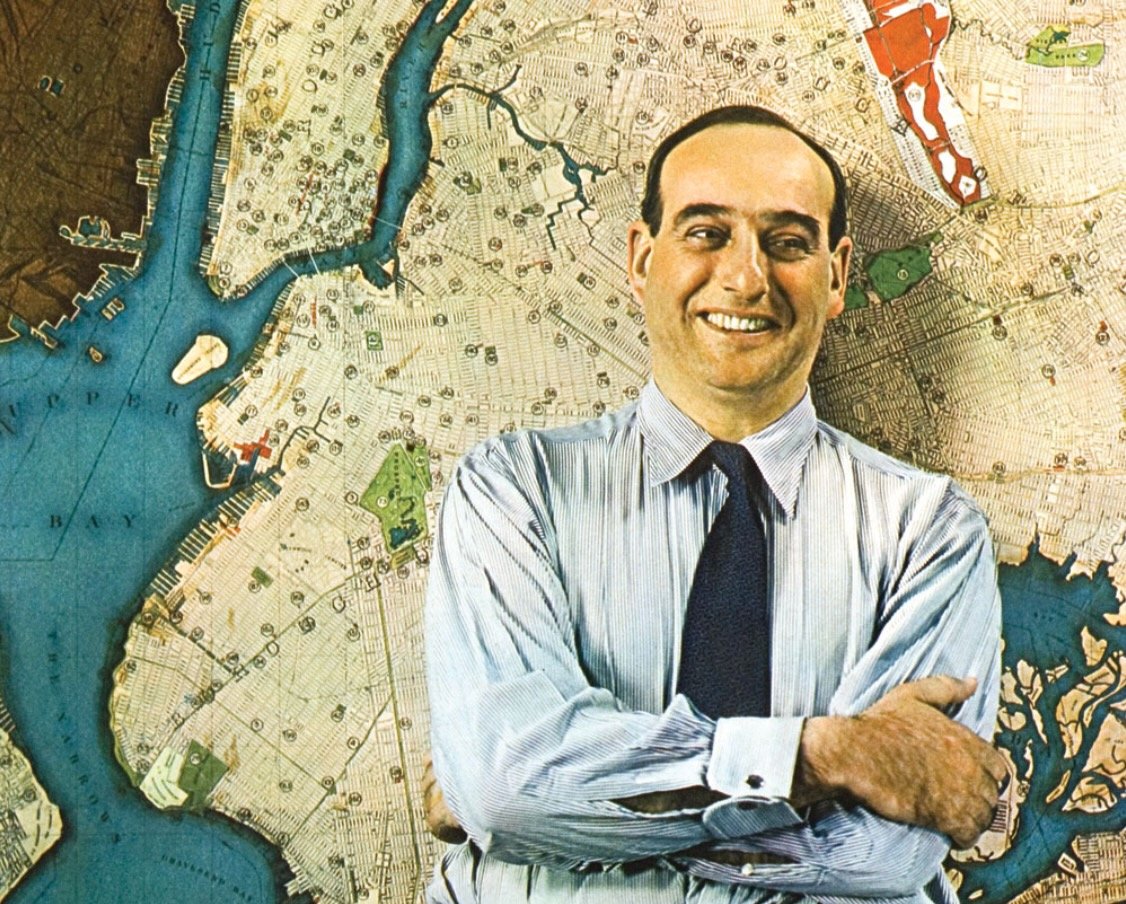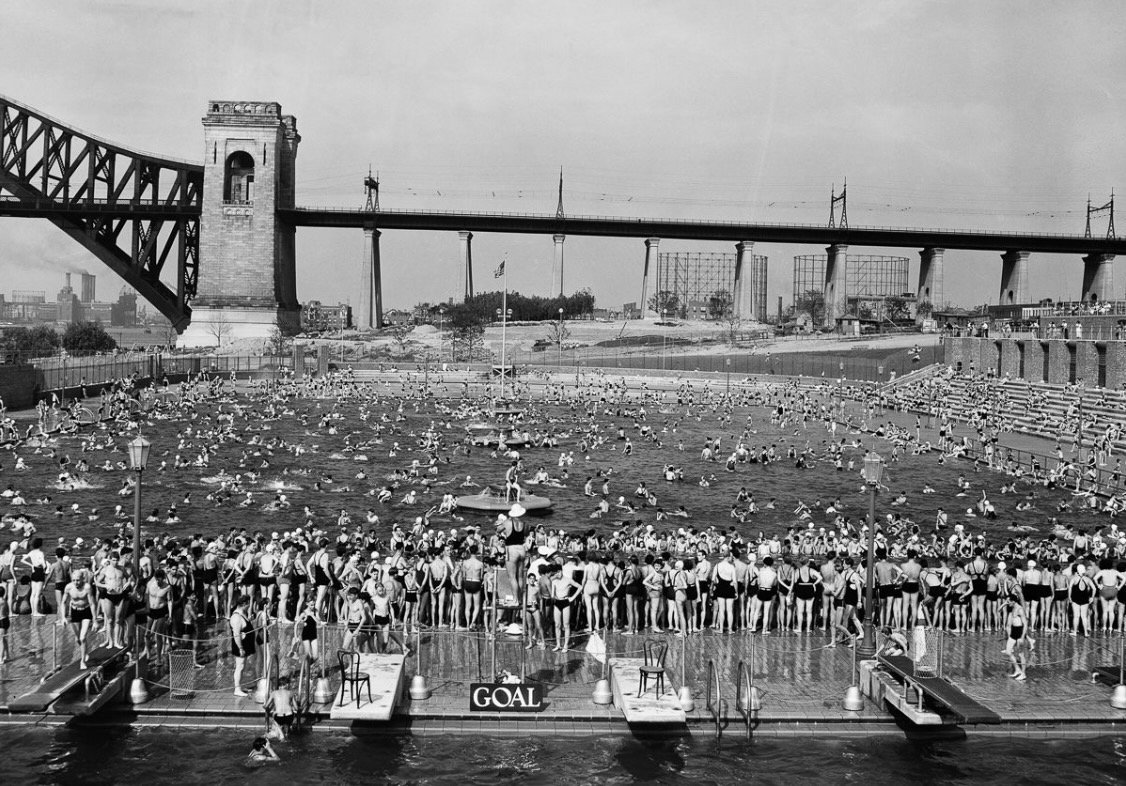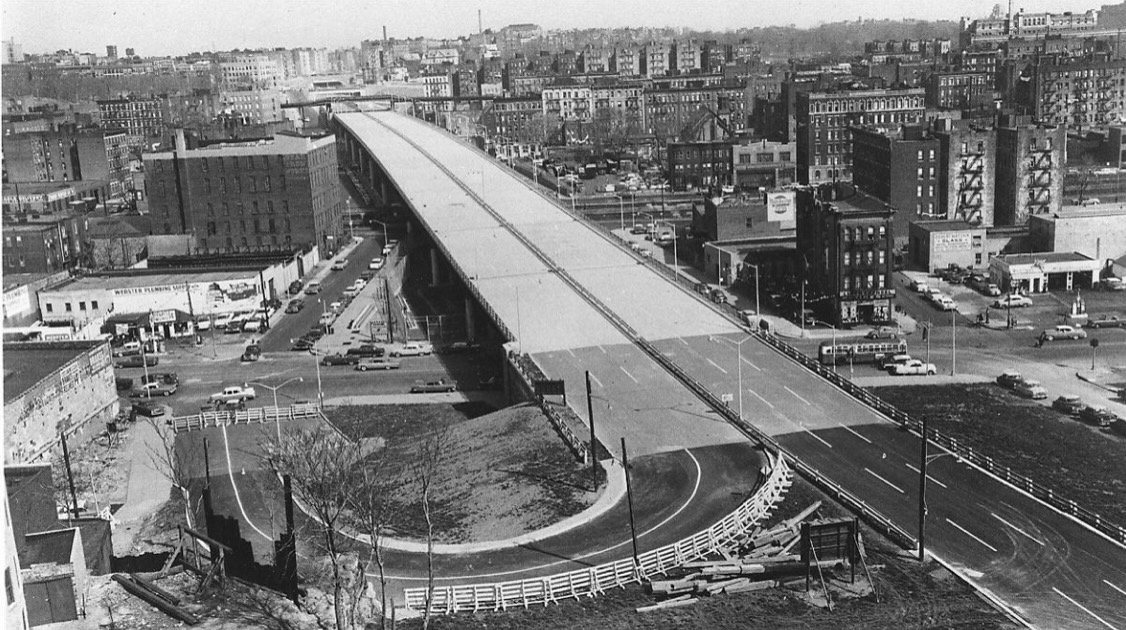Building H #97: Imagine: You Have The Power
Imagine: You have somehow secured the power and permission to build anything to the greatest city in the world. So what would you do?
If you’re Robert Moses, and that city is New York, you would build in abundance.
But not buildings. No, Moses built parks - not just in the city but, thanks to his peculiar power, Moses built parks across the state of New York. Up in Niagara and way out across Long Island, massive parks on a scale no one had imagined possible outside of Yosemite or Yellowstone, and never so close to a city so large or a city so hungry to get outside. The people wanted parks. Parks, after all, give people recreation and enjoyment and access to nature. Parks provide health.
And in those parks and in the city, Moses built pools - gargantuan swimming pools in a city of millions where thousands of people at once can wade and swim and frolic. Again, a boon to human health. Handed the means to change millions of New Yorkers lives, Robert Moses chose to build for health.
If parks and pools were the legacy of Robert Moses, he would be renowned among the greatest advocates for public health in the 20th century. He would be someone who seized an opportunity and turned it not only for the public good, but for the public health. He was given the means to build, and he built for health.
But that’s not just what Moses did. He also built parkWAYS - thoroughfares for cars (not buses or trains) to transport people to those parks. And then he built highways and freeways, carving through dense neighborhoods and displacing thousands - indeed hundreds of thousands - of people, who were cast to housing projects many miles from their neighbors or friends or familiar neighborhoods.
And in the main these were not white people. The displaced were Black or brown, people who, typically in those years, did not have cars that could take them to those majestic parks. And it wasn’t until he came for the white people’s neighborhood - Soho, in lower Manhattan - in the 1960s, that his particular definition of the public good was stopped.
The Cross Bronx Expressway - as it was being built tearing through neighborhoods.
So in fact, Moses built a lot of things, many things that make people's lives more happy and healthy. But he also took many lives, and cost a great many people's health, along the way. Not quite the legacy he hoped to have.
We’ve been thinking a lot about Robert Moses of late - mostly because of the amazing 99% Invisible Book Club that is spending 2024 reading and podcasting through The Power Broker, Robert Caro’s Pulitzer Prize winner biography of Moses. (Yes, we were among those who have owned the Power Broker for 30-plus years, but never really read the 1,200 page opus. Until now.) If you aren’t reading and listening to this - START HERE, NOW. The book is legendary, and the podcast shakes off those 50 years of dust since the book came out and makes it relevant for today. Plus: it’s one of the most readable, most gripping books we’ve ever read.
We bring this up here because - as loyal Building H followers know - we have long advocated for the rebuilding of everyday life (it’s in our name!), but rarely is anyone given an opportunity like was given to Moses, to actually build the structures of modern life, for more than 20 million people (+/-). And though he advocated for public health through many of his initiatives - parks and pools - he also made horrific and heinous compromises along the way. He saw society through a cruel lens of those Deserving and Undeserving of public benefit (where everyone who was not white and middle to upper class was a subject to, not an object for, reformation). And his privilege of cars, which became almost a mania, not only is historically a bad bet, but caused massive trauma to neighborhoods and people and populations.
So Moses was given an once-in-a-civilization opportunity - to build anything in the greatest city in the world - and (for all the reasons covered in The Power Broker, really - go read it!!!) squandered it, and his legacy, and the lives of millions.
There’s another thing ringing in our ears, though, as we read The Power Broker- it’s the exceptional opportunity that Moses, whose power originated as (but expanded far beyond) the parks commissioner for the City of New York, was able to push an agenda on behalf of the citizens of New York City far beyond the five boroughs.
Typically, today, the leaders of most cities have their political power circumscribed by the borders of their municipality. That makes sense; the mayor of San Francisco only has jurisdiction over the city of San Francisco.
But the problems most cities face extend and are caused by conditions beyond their borders. Cities are, after all, epicenters that create suburbs and satellites around them. And they are centers for all the troubles of their greater communities and circumstances - often unfairly so.
The population of New York City, for example, is about 8 million - but the population of the greater New York area is more than 20 million, depending on how you map it. So NYC has to not only account for the needs of their citizens but for those people and communities which depend upon - and have expectations of! - New York City.
Similarly, the population of San Francisco (a tiny city by square area) is scarcely 900,000 - but the Bay Area holds 10 times that number (9 million). It’s the same across the United States (and worldwide) - cities are the center, but the benefits of that center extend and benefit far more than the residents of that city center. The Bay Area depends on the City of San Francisco, as the big city, to absorb the ills and the challenges of the entire Northern California region - and then condemns the city for failing to handle those "city" troubles, and affords the city no more resources to deal with the problem.
Which is to say, cities enjoy the benefits but also disproportionately suffer the burdens. The problems of modern society - housing, homelessness, migration, education, drug addiction - are increasingly borne by cities by themselves. And thanks to the perversity of our tax code and municipal structures (where money flows to state and federal governments), cities are on the hook to not only pay for but to SOLVE these problems. And we want cities to be bastions of health and prosperity? Oy.
THIS IS A WHOLE DIFFERENT NEWSLETTER. We’ll return to this theme (there's a lot to say!) in an upcoming newsletter, but for now, we’ll just leave you with the idea that Robert Moses had a singular opportunity: He not only controlled the city’s parks, he also pretty much controlled the State! In his own perverse way, he was able to carve up New York State in a way that benefited the residents of New York City - or at least his favored residents of New York City. And he did it, again, in his own perverse way, with at least an eye towards the public’s health. But he made bad bets. He chose whites over Blacks. He chose cars over trains. He chose the privileged over those who needed it.
If only he hadn't been such a egotistical bastard. Surely if we somehow secured the power and permission to build anything in our cities, we could do better than Robert Moses did.
What do you think? Comments are open below.
Read the full newsletter.



